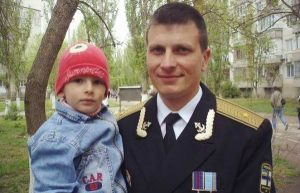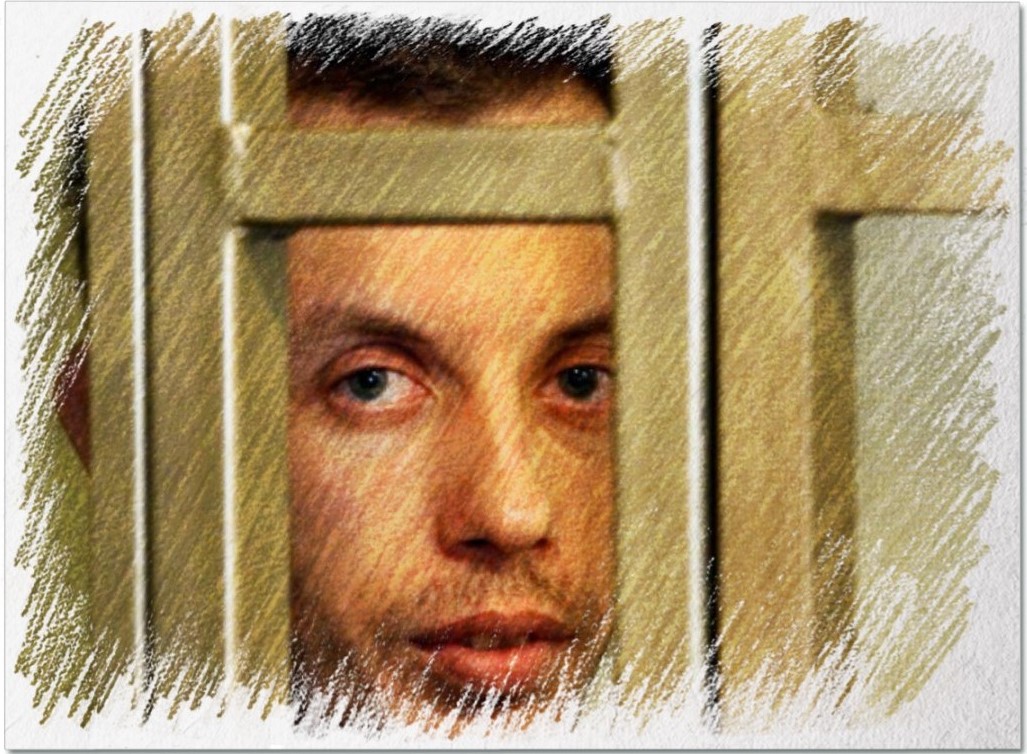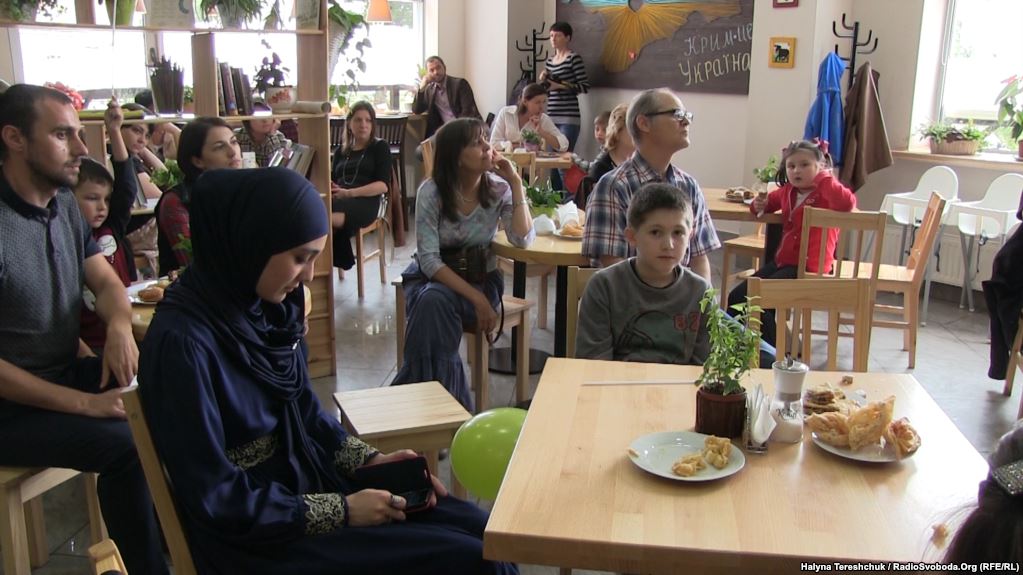Major Stanislav Karachevsky of the 10th Saky Naval Aviation Brigade was fatally shot in the back from an AK-74 assault rifle around midnight on April 6, 2014. The Crimean Garrison Military Court found Yevgeniy Zaitsev, a marine serving in the Russian Black Sea Fleet, guilty of killing the Ukrainian serviceman. The murderer received a “symbolic” sentence – two years in a penal colony settlement.
The court replaced the original accusation under Article 105 of the Criminal Code of Russia (“Intentional Homicide”) with an accusation under Article 108, whereby it was deemed that the “homicide was committed in excess of the measures needed for the detention of a person who has committed a crime”. This means that the Ukrainian officer, who was killed while performing his duties, was declared a “criminal”. Olha Karachevska and her representatives appealed the verdict, but the North Caucasus District Military Court of Rostov-on-Don refused to change it.

However, Yevgeny Zaitsev never made it to the penal colony, but was hospitalized in the Federal State Border Guard Service Medical Institute (1472 Naval Clinical Hospital of the Russian Defense Ministry). In fact, he was again accused of inflicting such serious physical harm that the victim had to have his spleen removed. On October 7, 2015, the Sevastopol Garrison Military Court sentenced Zaitsev to three years’ imprisonment, and, taking into account the unexpired term of the previous sentence, to four years in a general penal colony.
Nevertheless, Vladimir Putin claims that Crimea was “annexed” peacefully, “no one was killed during the events in Crimea”, and therefore it is inadmissible to use such words as “annexation” or “occupation” when describing these events. Putin maintains that no shots were fired, and yet, a Ukrainian soldier was shot dead at an army base in Simferopol, the first military fatality on the peninsula since the crisis began.
“That’s why it’s so important that Zaitsev’s murder of a Ukrainian soldier was confirmed by a court verdict… and what’s more, by a Russian court. As a matter of fact, one of Putin’s favourite arguments is to refer to the legality of Russian court decisions. But, here it seems that the court’s decision in the Zaitsev case has turned out very embarrassing for the Kremlin.” says Vodik.
The lawyer assumes that initially, the case was opened and immediately dispatched for a court hearing through sheer inertia, and obviously the investigators did not fully understand the implications of this affair.
“At that time, the judges were encouraged not to convict any so-called “little green men”. However, the court fell into a peculiar trap of the Russian judicial system – an unspoken rule, according to which Russian courts in principle do not pronounce acquittals. In this case, the judges tried to minimize and whitewash Zaitsev’s deeds as much as possible by twisting and “re-inventing” the charges.”
“The verdict was pronounced two days before the release of the scandalous film Crimea. The Way Home*, which in fact is an “acknowledgement of guilt” for Putin and his military command, as it demonstrates the role that the Russian authorities and army played in the annexation of Crimea. It’s very likely Putin simply didn’t know about the Karachevsky case at that time, which actually throws a new light on his “confession”.” states Vodik.
*Crimea. The Way Home is a Russian documentary about the annexation of Crimea by the Russian Federation in 2014. The film features an interview with Vladimir Putin, disclosing various aspects of the Crimean crisis. Putin reveals that he took personal charge of the Crimean annexation and that in case of an “unfavourable scenario on the peninsula”, Russia could have placed its nuclear weapons on combat readiness.
Andrei Vodik emphasizes that the sentence pronounced by the Russian court, even though it reflects a formal and insignificant form of punishment, confirms a most important fact – Moscow’s aggression in Crimea brought about human losses.
“This is a good example of a cause-effect relationship, because it proves that Moscow’s operations in Crimea in the spring of 2014 led directly to human casualties. The second important point is that the Russian Ministry of Defense was named civil defendant in the Zaitsev case. The court’s decision indicated that the Russian Ministry of Defense must pay compensation in the amount of 500,000 rubles to Olha Karachevska. Note that the court does not mention the “little green man” Zaitsev. But, we can now assert that an ordinary Russian soldier killed an officer of the Ukrainian Armed Forces during the Crimean occupation, and this was duly confirmed by the verdict of a Russian court, which came into force.” underlines Andrei Vodik.
According to the lawyer, these facts will be very important not only for “future court proceedings at The Hague”, but even today, especially in light of specific international documents that have been approved on the situation in Crimea.
“In the summer of 2015, PACE, recognizing Russia as the aggressor, and Crimea, as an occupied territory, drew up detailed recommendations for the Ukrainian authorities, including the adoption of a special law on missing persons that would legally establish the status of “missing persons” and “victim of war”. There’s no doubt that Stanislav Karachevsky is a victim of war.” notes Andrei Vodik.
On December 19, 2017, the UN General Assembly supported the resolution “Situation of human rights in the Autonomous Republic of Crimea and the city of Sevastopol, Ukraine” (A/C.3/72/L.42). Not only does this resolution contain references to international norms relating to the protection of human rights, but also extended references to international humanitarian law (in particular, the Geneva Conventions of 1949 and Supplementary Protocol I of 1977). These norms regulate the protection of victims of war, restrict methods and means of warfare, and define the responsibility for violating these norms. As many Ukrainian mass media have noted, such changes mean that the situation in Crimea is recognized as an ongoing occupation and an international armed conflict. In 2016, the Office of the Prosecutor of the International Criminal Court in The Hague gave a similar statement.
“Viewed against this background, the Karachevsky case could serve as an important example of a victim of war case that took place in Crimea. Ukraine should continue to investigate his death and use this case as leverage that might lead to even more rigorous international formulations. Such formulations are not as useless as they seem. They stipulate that Crimean victims of occupation or repression can count on more extensive international legal mechanisms of protection, including international courts. Thus, individual states, referring to the language used in UN documents, may impose more severe sanctions against Russia.” concludes Andrei Vodik.







